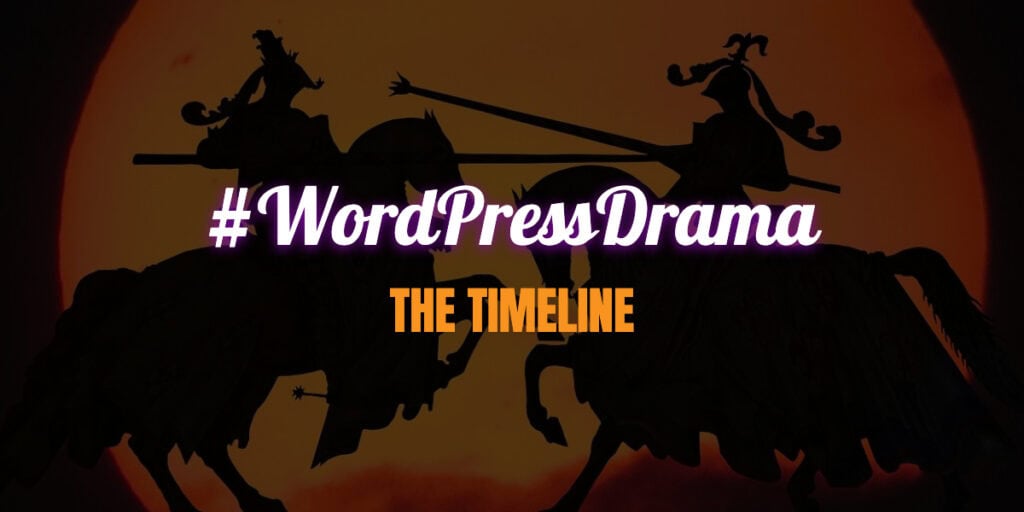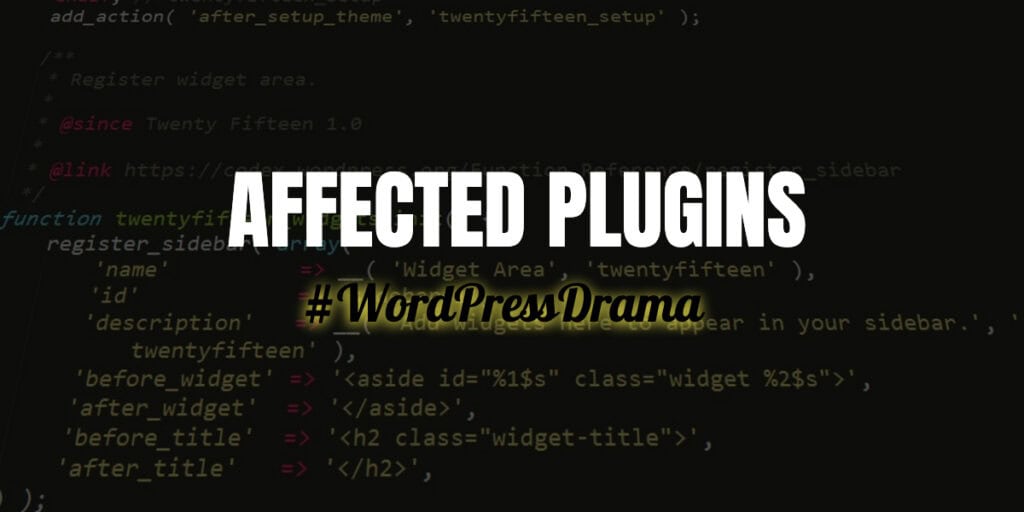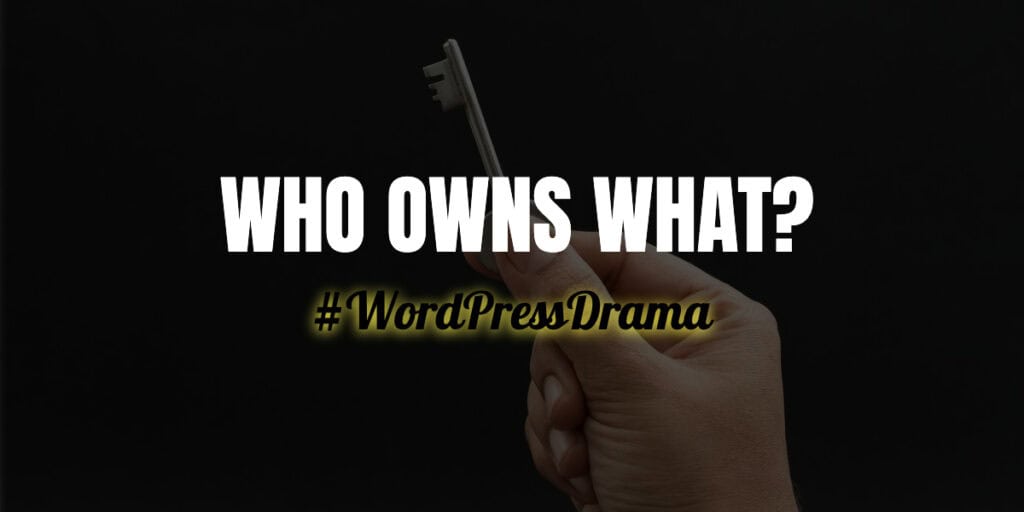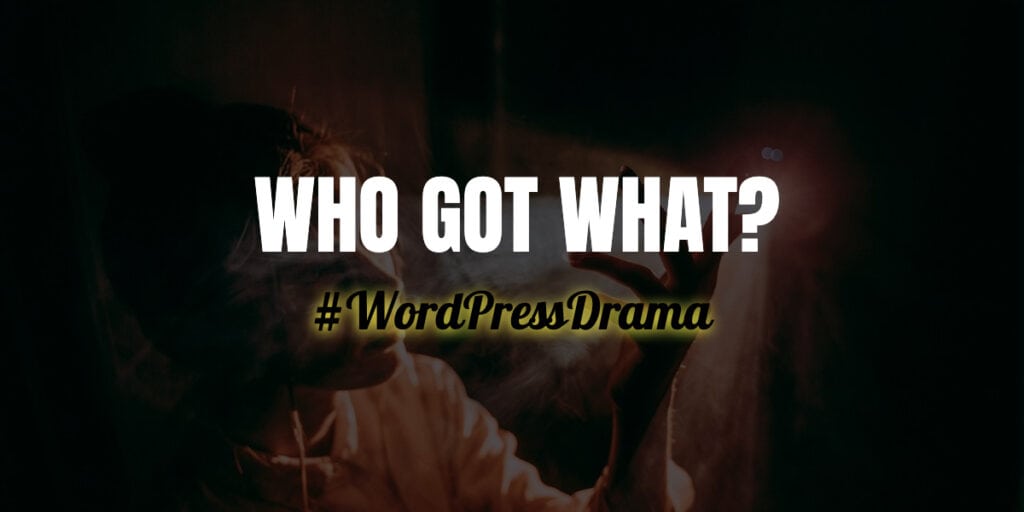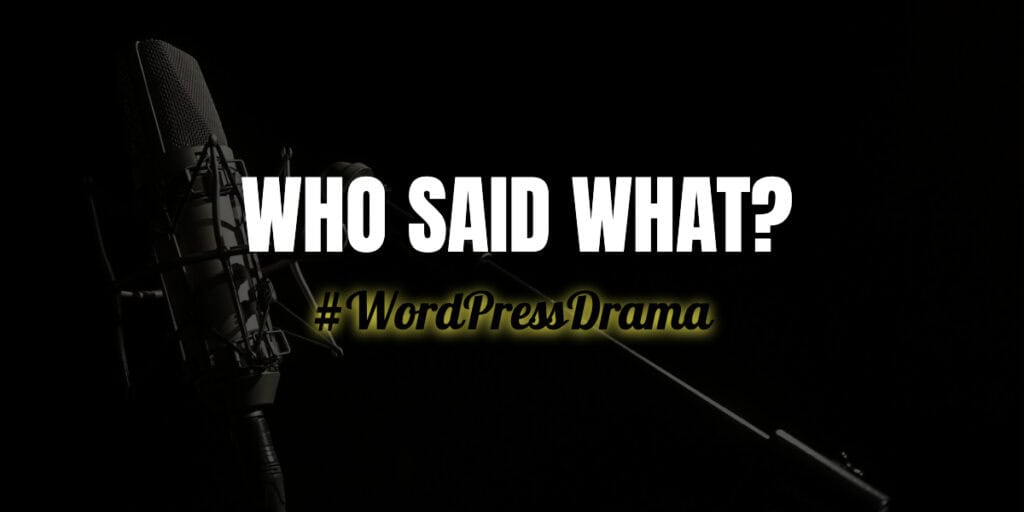On September 29, 2024, Theo from t3.gg interviewed Matt Mullenweg.
In this live discussion from San Francisco, they talked about the dynamics of WordPress and its related organizations, including Automatic and the WordPress Foundation. They discussed trademark issues, the effects of WP Engine’s brand management, and the changing contributions to the WordPress community.
The conversation covered the ethical aspects of trademark enforcement and the importance of transparency among companies. It emphasized the need for clear communication in business practices and explored how different entities can positively impact the open-source ecosystem.
Here are the key takeaways from the video, created using Harpa AI.
- 00:05:19 🎤 Matt and the guest are in San Francisco for a live conversation, highlighting the untraditional setup and transparency of the discussion.
- 00:07:10 📊 The guest discusses the broad range of services and products under Automatic, including WordPress offerings and various applications.
- 00:08:07 🔑 Matt explains the complex relationship between WordPress.org, WordPress.com, and the WordPress Foundation, emphasizing ownership and licensing arrangements.
- 00:09:15 🏢 The WordPress Foundation functions as a nonprofit focused on education, while Automatic operates as a for-profit entity managing commercial aspects of WordPress.
- 00:12:10 ⚖️ The guest emphasizes that wp.org is not governed by the WordPress Foundation and retains operational independence regarding its trademark licensing.
- 00:15:09 🚫 Trademark enforcement can prompt challenges for brands; Matt notes that clarity in branding is crucial to avoid consumer confusion.
- 00:19:02 🤔 The discussion points to the shifting narrative regarding WP Engine’s access to WordPress resources and how communication around this issue has evolved.
- 00:24:11 📄 Communication details between Matt and WP Engine clarify potential consequences for violating trademark agreements, focusing on the need for trust and transparency.
- 00:26:14 🔄 The immediate impact of WP Engine’s status affects their customers, not just the company itself, underlining the importance of timely notification for users’ benefits.
- 28:04 💰 Discussion highlights how a sudden revenue reduction of 8% can significantly impact business operations and financial planning.
- 28:18 🔄 There are options for companies to contribute either financially (8% of revenue) or through equivalent engineering time for WordPress contributions.
- 29:15 📈 Despite contributing less due to a licensing fee, companies like WP Engine may still maintain substantial profits.
- 30:39 🤔 The distinction between contributions to WordPress versus contributions to community-owned plugins raises questions about what qualifies as true contribution.
- 32:31 🧾 Automatic’s Jetpack and WooCommerce plugins are seen as valid contributions to WordPress, though some argue ownership impacts their classification.
- 34:54 📉 Evaluating the time and resources companies invest in open source projects reveals discrepancies between perceived and actual contributions.
- 37:43 📊 Examples like Yast illustrate positive community contributions, aiming for a self-reported 5% commitment to community projects.
- 39:55 ⚖️ Ongoing trademark enforcement may appear retaliatory, raising ethical questions about the enforcement of moral expectations in the WordPress community.
- 41:04 🔍 The percentage of confusion among users regarding WP engine’s branding underlines concerns about trademark regulations and their enforcement.
- 48:02 🔗 The enforcement of trademark laws against WP Engine illustrates a unique approach to regulation in the WordPress ecosystem, differing from past interactions with other companies.
- 00:50:20 ⚖️ Companies can file a cease and desist for misleading claims that damage their reputation, even if there isn’t a clear trademark violation.
- 00:51:15 📜 The First Amendment allows individuals to express their opinions publicly, and legal action can be taken if these expressions infringe upon trademark rights.
- 00:52:12 🔗 Brand relationships can be built through technology partnerships, illustrated by the strong ties between the speaker’s company and Vercel during product launches.
- 00:54:15 💡 Enforcement of trademarks in open source is considered unusual, especially when it comes to revenue-sharing claims.
- 00:54:57 💰 No other company currently pays an 8% trademark fee to WordPress, highlighting unique financial aspects of the trademark agreement.
- 00:56:05 🎭 Companies can resolve trademark issues through licensing agreements, but historical public relations conflicts may complicate negotiations.
- 00:56:30 💭 Contributions to the WordPress community can take many forms beyond code, including marketing, translations, and organizing events.
- 00:58:20 🛠️ There is endless potential for contributions to WordPress, indicating that adding more contributors could be beneficial if managed properly.
- 01:00:11 📈 Companies that bet their business on WordPress can positively influence its ecosystem, demonstrating their commitment beyond mere financial incentives.
- 01:04:06 🏷️ Trademark use can sometimes lead to legal violations; understanding the context and approval is vital for compliance.
- 01:10:15 🔍 Surveys can help clarify community opinions on contributions and trademark usage, underscoring the importance of addressing potential confusion.
- 01:11:50 ⚖️ Oracle is concerned about potential risks to the Java trademark but is not actively using the JavaScript trademark.
- 01:12:33 📚 The speaker emphasizes the importance of discussing legalities surrounding trademarks, citing prior lawsuits over the misuse of JavaScript branding.
- 01:14:45 💬 Polls are used to engage the chat audience, highlighting perceptions around trademark use and confusion in the WordPress community.
- 01:18:02 🏛️ Discussions reveal tensions regarding WP Engine’s branding and its implications for the WordPress ecosystem, with significant audience sentiment apparent in poll results.
- 01:23:08 🤔 The speaker expresses disappointment in WP Engine’s lack of communication and responsiveness after years of trying to engage positively with them.
- 01:25:00 📊 The nature of WP Engine’s sponsorship at WordCamp is debated, exploring whether it constitutes a genuine contribution to the WordPress community.
- 01:28:02 🗣️ The speaker reflects on the impact of rapid public criticism on WP Engine’s reputation and the need for more gradual communication in disputes.
- 01:32:15 🤕 Small business owners hosting sites on WordPress Engine are reportedly suffering due to recent actions taken within the WordPress community.
- 01:34:07 🔍 Some companies in the WordPress space are seen as not contributing back enough to the community.
- 01:34:23 ⚠️ Concerns raised about how to handle companies that fail to contribute effectively, suggesting stricter measures.
- 00:05:19 🎤 Matt and the guest are in San Francisco for a live conversation, highlighting the untraditional setup and transparency of the discussion.
- 00:07:10 📊 The guest discusses the broad range of services and products under Automatic, including WordPress offerings and various applications.
- 00:08:07 🔑 Matt explains the complex relationship between WordPress.org, WordPress.com, and the WordPress Foundation, emphasizing ownership and licensing arrangements.
- 00:09:15 🏢 The WordPress Foundation functions as a nonprofit focused on education, while Automatic operates as a for-profit entity managing commercial aspects of WordPress.
- 00:12:10 ⚖️ The guest emphasizes that wp.org is not governed by the WordPress Foundation and retains operational independence regarding its trademark licensing.
- 00:15:09 🚫 Trademark enforcement can prompt challenges for brands; Matt notes that clarity in branding is crucial to avoid consumer confusion.
- 00:19:02 🤔 The discussion points to the shifting narrative regarding WP Engine’s access to WordPress resources and how communication around this issue has evolved.
- 00:24:11 📄 Communication details between Matt and WP Engine clarify potential consequences for violating trademark agreements, focusing on the need for trust and transparency.
- 00:26:14 🔄 The immediate impact of WP Engine’s status affects their customers, not just the company itself, underlining the importance of timely notification for users’ benefits.
- 28:04 💰 Discussion highlights how a sudden revenue reduction of 8% can significantly impact business operations and financial planning.
- 28:18 🔄 There are options for companies to contribute either financially (8% of revenue) or through equivalent engineering time for WordPress contributions.
- 29:15 📈 Despite contributing less due to a licensing fee, companies like WP Engine may still maintain substantial profits.
- 30:39 🤔 The distinction between contributions to WordPress versus contributions to community-owned plugins raises questions about what qualifies as true contribution.
- 32:31 🧾 Automatic’s Jetpack and WooCommerce plugins are seen as valid contributions to WordPress, though some argue ownership impacts their classification.
- 34:54 📉 Evaluating the time and resources companies invest in open source projects reveals discrepancies between perceived and actual contributions.
- 37:43 📊 Examples like Yast illustrate positive community contributions, aiming for a self-reported 5% commitment to community projects.
- 39:55 ⚖️ Ongoing trademark enforcement may appear retaliatory, raising ethical questions about the enforcement of moral expectations in the WordPress community.
- 41:04 🔍 The percentage of confusion among users regarding WP engine’s branding underlines concerns about trademark regulations and their enforcement.
- 48:02 🔗 The enforcement of trademark laws against WP Engine illustrates a unique approach to regulation in the WordPress ecosystem, differing from past interactions with other companies.
- 00:50:20 ⚖️ Companies can file a cease and desist for misleading claims that damage their reputation, even if there isn’t a clear trademark violation.
- 00:51:15 📜 The First Amendment allows individuals to express their opinions publicly, and legal action can be taken if these expressions infringe upon trademark rights.
- 00:52:12 🔗 Brand relationships can be built through technology partnerships, illustrated by the strong ties between the speaker’s company and Vercel during product launches.
- 00:54:15 💡 Enforcement of trademarks in open source is considered unusual, especially when it comes to revenue-sharing claims.
- 00:54:57 💰 No other company currently pays an 8% trademark fee to WordPress, highlighting unique financial aspects of the trademark agreement.
- 00:56:05 🎭 Companies can resolve trademark issues through licensing agreements, but historical public relations conflicts may complicate negotiations.
- 00:56:30 💭 Contributions to the WordPress community can take many forms beyond code, including marketing, translations, and organizing events.
- 00:58:20 🛠️ There is endless potential for contributions to WordPress, indicating that adding more contributors could be beneficial if managed properly.
- 01:00:11 📈 Companies that bet their business on WordPress can positively influence its ecosystem, demonstrating their commitment beyond mere financial incentives.
- 01:04:06 🏷️ Trademark use can sometimes lead to legal violations; understanding the context and approval is vital for compliance.
- 01:10:15 🔍 Surveys can help clarify community opinions on contributions and trademark usage, underscoring the importance of addressing potential confusion.
- 01:11:50 ⚖️ Oracle is concerned about potential risks to the Java trademark but is not actively using the JavaScript trademark.
- 01:12:33 📚 The speaker emphasizes the importance of discussing legalities surrounding trademarks, citing prior lawsuits over the misuse of JavaScript branding.
- 01:14:45 💬 Polls are used to engage the chat audience, highlighting perceptions around trademark use and confusion in the WordPress community.
- 01:18:02 🏛️ Discussions reveal tensions regarding WP Engine’s branding and its implications for the WordPress ecosystem, with significant audience sentiment apparent in poll results.
- 01:23:08 🤔 The speaker expresses disappointment in WP Engine’s lack of communication and responsiveness after years of trying to engage positively with them.
- 01:25:00 📊 The nature of WP Engine’s sponsorship at WordCamp is debated, exploring whether it constitutes a genuine contribution to the WordPress community.
- 01:28:02 🗣️ The speaker reflects on the impact of rapid public criticism on WP Engine’s reputation and the need for more gradual communication in disputes.
- 01:32:15 🤕 Small business owners hosting sites on WordPress Engine are reportedly suffering due to recent actions taken within the WordPress community.
- 01:34:07 🔍 Some companies in the WordPress space are seen as not contributing back enough to the community.
- 01:34:23 ⚠️ Concerns raised about how to handle companies that fail to contribute effectively, suggesting stricter measures.
- 01:55:56 📅 Discussion on future conversations to address ongoing issues in the WordPress community by 2033.
- 01:56:09 ⚖️ Concerns about escalations in actions affecting WordPress users, perceived as unfair by the community.
- 01:57:21 🎤 Emphasis on the need for clearer communication regarding business changes to avoid community confusion.
- 01:58:43 🗣️ Acknowledgment of the need for better timing and communication when addressing controversial business practices.
- 02:03:03 📝 Importance of editorial review and responsible writing in public communications as a CEO.
- 02:05:54 🕊️ Advocacy for maintaining a positive public persona and kindness as a representative of the WordPress community.
- 02:07:30 🏷️ Clarification of the complexities surrounding WordPress.com and WordPress.org branding and trademark issues.
- 02:09:01 🔍 Assurance that the WordPress Foundation’s board members have no financial ties to Automatic, indicating no conflict of interest.

